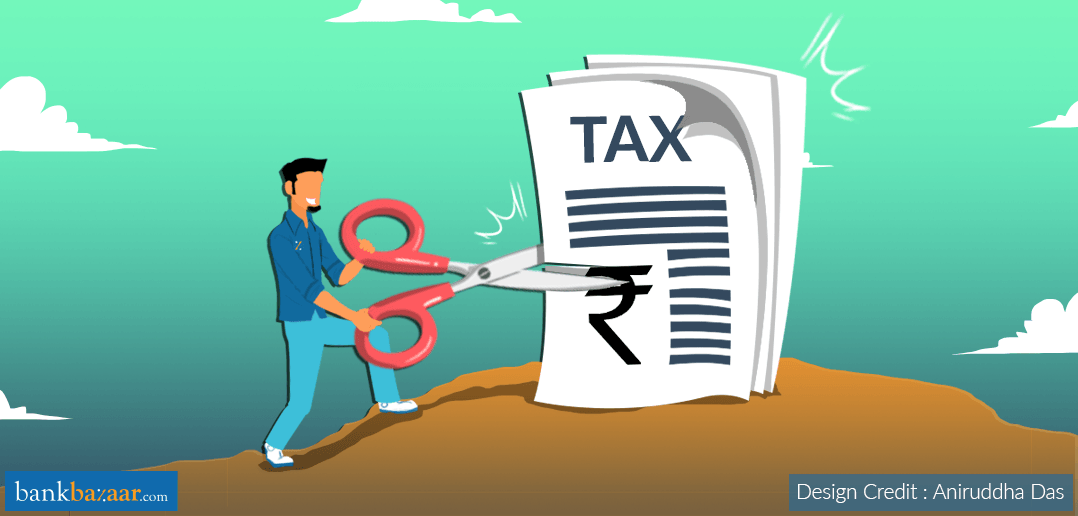Not sure how to begin your tax planning? Read up to get practical advice on the popular tax-saving options beyond Section 80C.

That time of the year is here again. The last date for filing your taxes is approaching at break-neck speed. You haven’t yet gotten around to checking your payslips, let alone bother about paying taxes. Add to that, countless emails from the HR’s desk reminding you about the impending doom.
Should you give this one a miss? Will there be a penalty?
Damn, you ask a friendly colleague who swiftly points you towards Section 80C. Not knowing the when or what of Section 80C, you heed his advice and take your chance anyway.
The result?
You are stuck with a non-descript endowment plan that promises to lock your money away for 10 years and pay an interest that is as good as zero.
If you are one of the millions of taxpayers in the country about to take a hasty investment decision, stop right there!
What Makes Section 80C So Popular?
Section 80C is a primary choice for most taxpayers as it allows deductions up to Rs 1.5 lakhs per annum. For instance, if your taxable income is Rs 1 lakh and you invest the same amount in a scheme covered under Section 80C, you will be paying zero additional taxes that year (not taking into consideration education cess or capital gains).
Additional Reading: 4 Expenditures Under Section 80C That Can Help You Save Tax
Section 80C Has Its Drawbacks
Despite its massive popularity, Section 80C has its share of limitations.
Take, for instance, the ELSS schemes that most taxpayers unequivocally swear by. Not all ELSS schemes perform the same. Some provide great returns while some clearly do not.
Moreover, they come with a mandatory lock-in period of 3 years, which might not be favourable for everyone.
Besides, it’s never a great idea to put all your eggs in one basket, is it?
Additional Reading: The Layman’s Guide To Investing In ELSS
Tax-Saving Options Beyond Section 80C
-
Section 80D – Deductions On Medical Insurance
Getting a Health Insurance should be the top priority for all working professionals. If you are yet to tick this off your checklist, do it right away. A Health Insurance policy not only takes care of the financial burden in the event of a medical emergency, but it’s also quite effective as a tax-saving instrument.
Who Can Claim A Deduction Under Section 80D?
Any taxpayer can claim deductions u/s 80D. The Health Insurance premium paid for the following members in a family are eligible for deductions:
- Self
- Spouse
- Children
- Parents
Can You Pay Your Premium By Mode Of Cash?
No! In order to claim a deduction, you have to pay your medical premium by any mode other than cash.
What Is The Maximum Deduction That You Can Claim?
You can avail a maximum deduction of Rs 25,000 on the premium paid for oneself, spouse, or dependent children. You can get an additional deduction of Rs 25,000 on the premium paid for your parents.
For senior citizens, however, the maximum limit is Rs 30,000.
-
Section 80E – Interest Paid On Education Loan
In case you are still paying off dues on an existing Education Loan, Sec 80E will come in extremely handy to you. Under this section, you get to claim full deductions on the amount you paid as interest.
Who Can Claim A Deduction Under Section 80E?
Any individual who has availed an Education Loan from a recognised institution can claim a deduction under this section.
How Long Can You Claim Deductions Under Section 80E?
This deduction is available for eight years, starting from the year in which you made the first interest payment.
What Is The Maximum Deduction That You Can Claim?
Since higher education is an expensive affair, Section 80E does not have an upper limit on the deduction that you can claim.
Additional Reading: It’s March! Few Last Minute Tax Saving Tips
-
Section 80EE – Deduction On Home Loan Interest
First-time homebuyers can finally put their money worries to rest. Section 80EE provides first-time homebuyers deductions on the interest paid on their Home Loan. The maximum deduction that you can claim under this section is Rs 50,000 per annum.
However, in order to claim deductions under this section, you need to adhere to the following conditions:
- This is the first house that you have purchased – deductions under Section 80EE can only be availed by first-time buyers.
- The value of the house is Rs 50 lakhs or less.
- The total value of the loan is Rs 35 lakhs or less.
- A reputed financial body has sanctioned the loan.
- The loan must be sanctioned between 01.04.2016 to 31.03.2017
-
Section 80 GG – Rent Paid For Accommodation
If you do not receive HRA (House Rent Allowance) as part of your salary or if you are not a salaried employee, you can claim deductions for the rent paid for accommodation u/s 80GG.
The deduction amount will be the lower one of the following:
- Rs 5,000 per month.
- Rent paid over 10 per cent of the total income.
- 25 per cent of the total income.
Before you roll up your sleeves and get cracking on the practical details of taxation, take some time to read up and learn all that you can. That way, you will avoid the pitfalls and keep yourself at the top of your game. We’re always there to help.